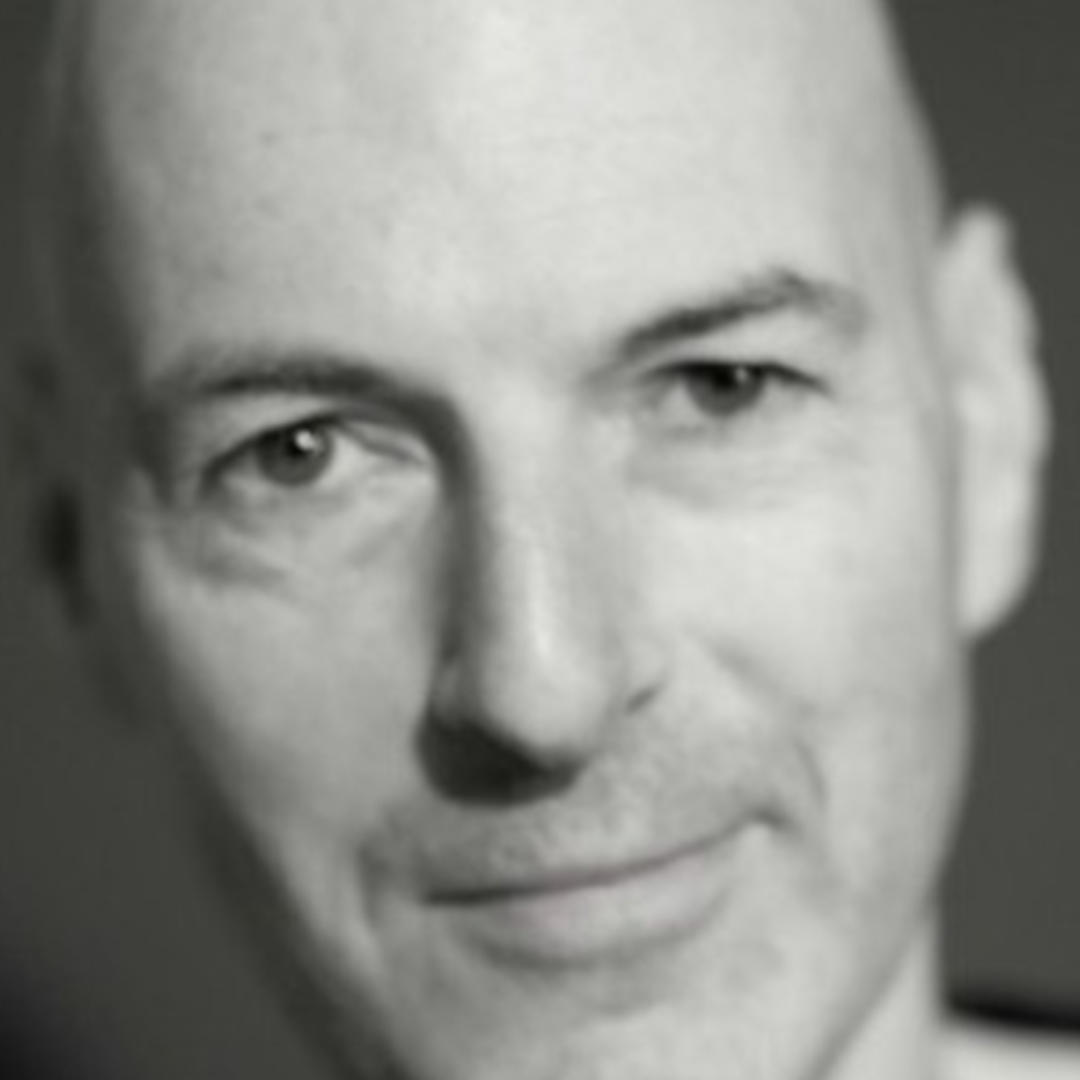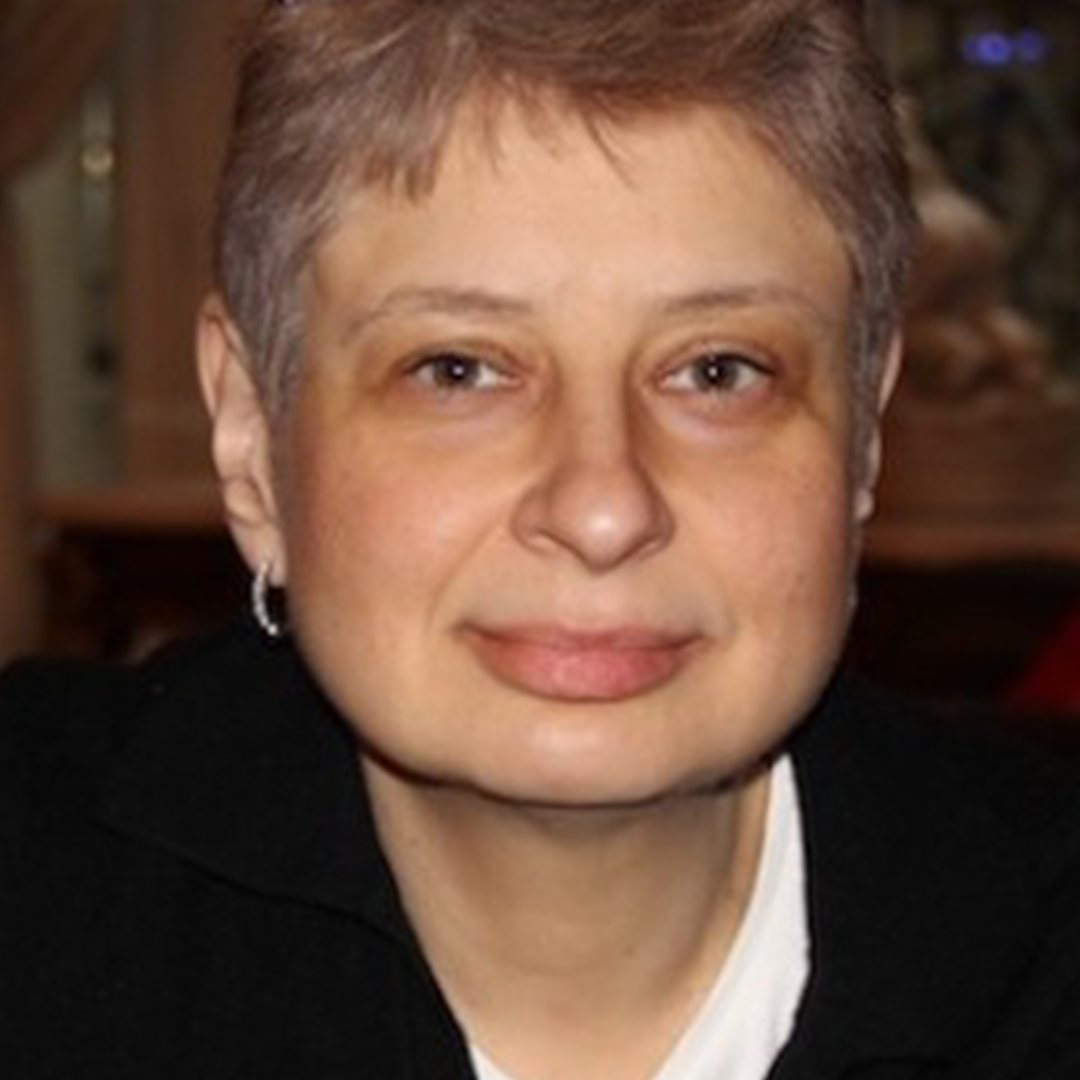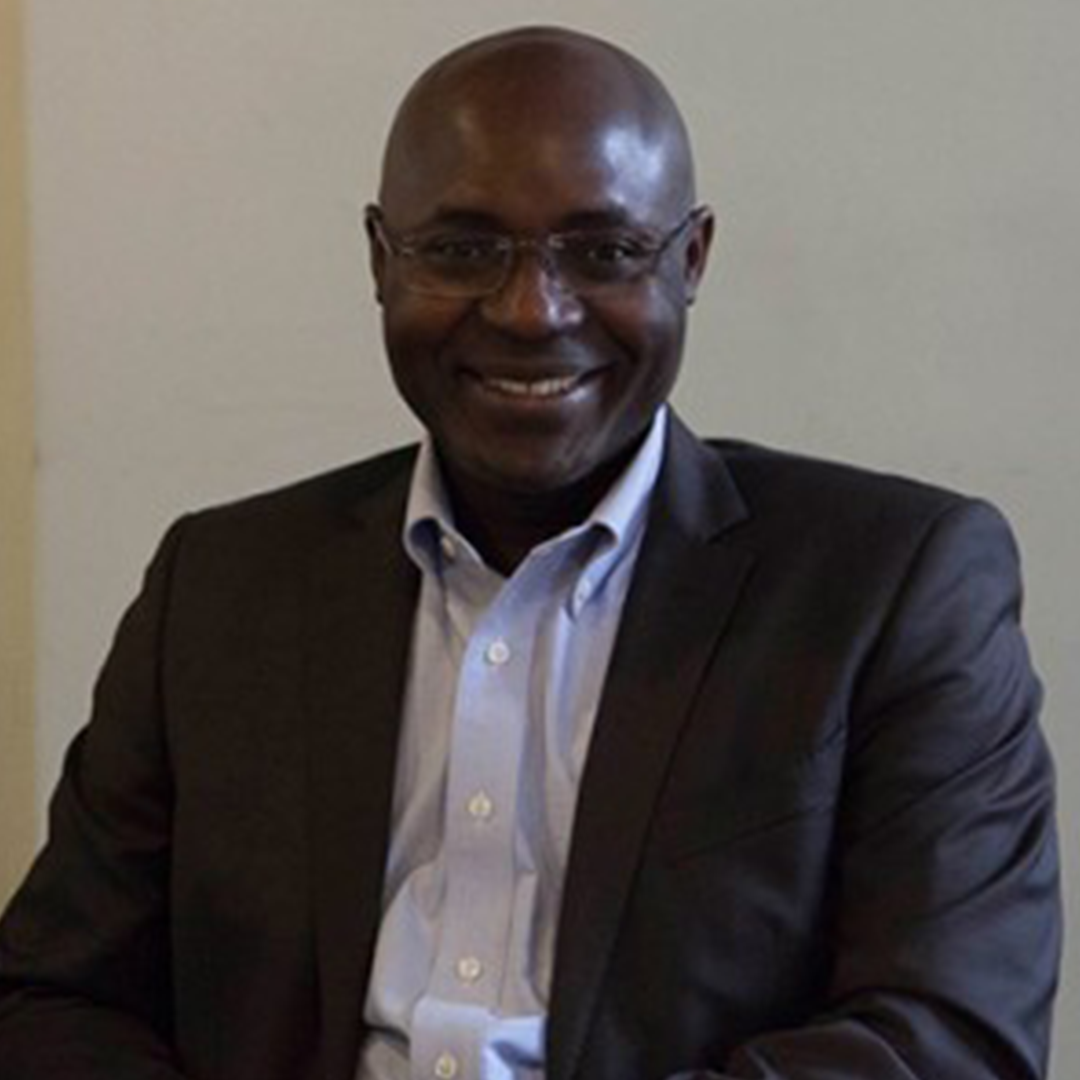18 Aug 2017 | News and features, Youth Board
[vc_row][vc_column][vc_column_text]Index on Censorship has recruited a new youth advisory board to sit until December 2017. The group is made up of young students, journalists and researchers from four continents.
Each month, board members meet online to discuss freedom of expression issues around the world and complete an assignment that grows from that discussion. For their first task the board were asked to write a short post about a pressing freedom of expression issue from their countries of residence.
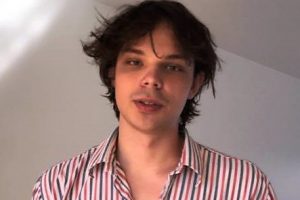
Sean Eriksen – Brisbane, Australia
Eriksen is a 21-year-old Arts/Law student majoring in history and international relations
Notwithstanding the aphorism that ‘if free expression is to mean anything then it must protect unpopular opinions’, censorship is most tolerable at the fringes; and it is a mark of social progress that bigotry is considered so unpopular that many countries have tried to legislate it out of existence. But the suggestion that hate speech laws represent a positive cultural development does not endear them to those who believe free expression is inherently sacrosanct.
Section 18C(1)(a) of Australia’s federal Racial Discrimination Act 1975 prohibits acts that are reasonably likely to ‘offend, insult, humiliate or intimidate another person or group of people’ based on their race, colour, or national or ethnic origin. This allows administrative review and ultimately litigation, giving judges a wide capacity to make rulings on acceptable public discourse.
Defenders of the law claim that sufficient legislative exemptions protecting artists, commentators and academics exist elsewhere in the legislation, but in practice the standard for offence has not been particularly high. Most famously in Eatock v Bolt, articles by a conservative columnist were prohibited from further publication because he had suggested that many people were identifying as indigenous solely because it had become trendy to do so. This is perhaps a crass point to make, but not one that adults cannot reasonably be exposed to.
Though it may be meant well, the censorship of ugly or even disturbing speech is still censorship. Bad ideas do exist and the only harm is in hiding them.
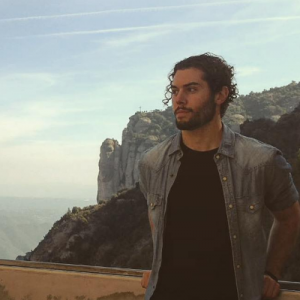
Adam Rossi, youth advisory board, July-December 2017
Adam Rossi – Vancouver, Canada
Rossi is a Canadian student pursuing an MA in International Relations. He recently spent a year teaching English in Barcelona, Spain
Seven years after Catalonia’s government outlawed bullfighting in the autonomous region, its officials now find themselves back in the ring. They’ve been thrown in with a great bull, the Spanish government, which has been trying to skewer any Catalan public figure expressing pro-independence views as if they were matadors clad in red.
They have already suspended, fined, and barred from office the former Catalan prime minister, some of his cabinet members, and city councillors for organising a mock referendum back in 2014 and for continually speaking publicly about their belief in the need for real independence. Joan Coma, a leftist city councillor of the Catalan CUP party, now faces an eight-year prison sentence with his passport confiscated for saying, “To make an omelet, you must break some eggs,” in a discussion on independence. Spanish authorities claim that this was a call for political violence. Meanwhile, Spanish President Manuel Rajoy has even threatened to use force to stop the referendum. Not allowing the vote to happen would be undemocratic, essentially ignoring the voice of the people. In addition, these targeted shots at individual citizens such as Joan Coma only serve to drag Spain back to a dark past of civil oppression. They are even using the Francoist penal code to charge Coma. However, these acts only seem to be fuelling the hearts of Catalans, as street demonstrations and “si” vote flags begin to fly proudly outside people’s homes. The current Catalan president, Carles Puigdemont, says the vote will happen regardless, and that the Catalan government will be prepared for immediate separation if the result is a “yes.”
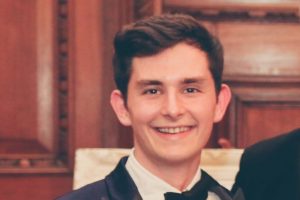
Huw Roberts, youth advisory board, July-December 2017
Huw Roberts – Hampshire, UK
Roberts graduated from Durham University in June 2017 with a BA in Politics. He has been granted a scholarship to study Public Administration at Shanghai Jiao Tong University
In May 2016 major social media firms, including Facebook and Twitter, signed up to a voluntary code of conduct aimed at combating illegal hate speech. This agreement, in partnership with the European Commission, required the signees to remove hate speech posted on their platform within a twenty-four hour period. Since this deal, the pressure placed on these companies to remove hate speech has been increasing, with proposals forwarded by European Union member states for binding legislation and punitive fines. Undoubtedly, the scope for the facilitation and proliferation of hate speech on these platforms requires a response, however, the current demands being placed on social media firms are fostering policies which often lack refinement and curtail legitimate free speech.
Leaked documents from earlier this year revealing Facebook’s hate speech policies typify the problems censorious practices can raise for free expression. The leading headline from these documents was that white men (as a group) were considered a protected category, yet, black children were not. As such, under Facebook guidelines attacks directed against white men were required to be removed, whilst those targeted at black children were permissible. This policy would not only seem discriminatory towards those most vulnerable within society, but has also proven detrimental to discourse. For example, campaigners from social justice groups such as Black Lives Matter have found their accounts blocked due to criticising structural privileges held by white men. Without an overhaul of the current guidelines in place and a more nuanced approach to censoring hate speech, those most marginalised within society risk having a vital outlet for raising debate and challenging inequalities shut down.
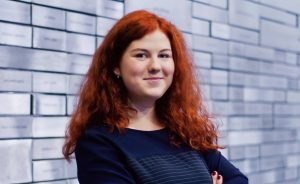
Madara Melnika, youth advisory board, July-December 2017
Madara Melnika – Riga, Latvia
Madara is a law student at University of Latvia. She has also studied in Salzburg and Berlin
At the beginning of July 2017 one of the most popular sports commentators in Latvia, Armands Puče, was dismissed from covering the Latvian Kontinental Hockey League club Dinamo Riga’s games. Although he was dismissed by the private media enterprise MTG TV Latvia, this case is noteworthy as the journalist claims that the decision on his dismissal was taken after the company received an ultimatum from the KHL bureau in Moscow, threatening to end the KHL’s broadcasting agreement with MTG TV unless Puče was removed.
His colleagues hinted that “just like in Soviet times”, all of the articles written by Puče in his parallel work as a journalist, in which he criticised the political ideology of the KHL and its impact on Dinamo Riga, had been translated into Russian and sent to the KHL main bureau in Moscow. It is important to stress that the mentioned articles were not connected to his hockey broadcasts.
After some time, the media enterprise claimed that its cooperation with Puče was ended due to plans for a new show concept, which would include also changing the anchor of the broadcast. Thus Puče, who had led the Hockey studio ever since the first season of the renewed hockey club Dinamo Riga, had to be let go.
Of course, the commentator is connected to his media employer and represents it. However, can the fate and work opportunities of a sports commentator absolutely depend on his ideology and activities done outside work – and will the teams suddenly play better, if their games are covered by loyal commentators?
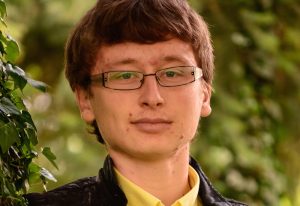
Daniel Penev, youth advisory board, July-December 2017
Daniel Penev – Kyustendil, Bulgaria
Penev is a Bulgarian freelance journalist and a member of the Association of European Journalists
Valentin Todorov is a journalist from Novi Iskar, a town in western Bulgaria, who owns the local news website www.noviiskar.bg. He registered the website under this name in 2010. In June, Todorov learned that Daniela Raycheva, the mayor of the district since 2011, had challenged his right to use this domain. According to the general terms set out by Register BG Ltd., which administrates web domains in Bulgaria, the names of municipalities and regions are reserved for domains registered by the respective administrations. However, when the name is already in use, the parties wanting to use it must either choose another name or wait until it becomes vacant. Here comes the gist of the struggle: when he registered his website, Todorov secured a declaration in which Valentin Kotov, then mayor of Novi Iskar, explicitly states that he will not claim the name while it is active.
“There arises the question as to whether the public administration may, whenever it wishes, make claims in relation to something it has given away and which a citizen owns and has invested in for years,” the Association of European Journalists – Bulgaria wrote in July. “Trust is a media outlet’s greatest capital and it is inseparably connected to its name.”
Todorov suspects that the district mayor resorted to such actions because of the website’s more critical reporting on the various problems in the district. Notably, the mayor only decided to challenge his use of the domain six years after she took office. The administration also already has its own website, www.novi-iskar.bg. Todorov is optimistic about the outcome of the dispute, due by the end August, but if the Register BG commission rules in favour of the mayor, this will set worrying a precedent for all media outlets in Bulgaria.

Sophie Baggott, youth advisory board, July-December 2017
Sophie Baggott – London, UK
Baggott is a journalist focused on promoting human rights
Another resounding voice has blasted proposed changes to the regime protecting official information in the UK, which would deem anyone who communicates information seen ‘to prejudice the United Kingdom’s safety or interests’ or anyone who ‘obtains or gathers’ such information as having committed an offence, potentially resulting in a jail sentence of up to 14 years. To what extent will our government listen to the outcry?
“The proposals threatened would be ‘both retrograde and repressive’”, said the News Media Association (NMA) in a 20-page document released at the end of July. The NMA, which speaks for national and regional UK news media, has highlighted the industry’s concerns about consultative proposals for changes to the Official Secrets Acts and the Data Protection Act, as well as to other unauthorised disclosure offences.
The proposed reforms would lead to ‘damaging and dangerous inroads into press freedom by making whistle-blowers, journalists and media organisations prime targets for state surveillance and criminal prosecution’, the NMA warned. The association said the changes would ‘extend and then entrench official secrecy’, adding: ‘It would be conducive to official cover up. It would deter, prevent and punish investigation and disclosure of wrongdoing and matters of legitimate public interest’.
Investigative journalism could endure a ‘chilling effect’, said the NMA, from how the changes would make it easier for the government to prosecute anyone involved in obtaining, gathering and disclosing information, even if no damage were caused, and irrespective of the public interest. The proposed reforms might also precipitate a more widespread use of state surveillance powers against the media under the guise of suspected media involvement in offences. This would pose a threat to confidential sources and whistle-blowers, the NMA noted.
Is the government going to reconsider or restrict? Either way, the media industry will certainly have to remain on high alert for the foreseeable future.
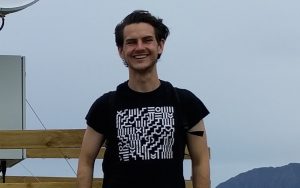
Dan Bateyko, youth advisory board, July-December 2017
Dan Bateyko – Sarasota, Florida
Bateyko is an internet rights researcher from Sarasota, Florida. He is currently travelling on a Watson Fellowship, a one-year purposeful grant for global independent study
U.S. Twitter users blocked by their twit president might have a remedy. On July 11, the Knight First Amendment Institute filed a lawsuit arguing that US President Donald Trump violated the First Amendment rights of dissenting citizens when he blocked them from reading his tweets and contributing their own. Speaking to Index, Katie Fallow, senior staff attorney at Knight Institute, distilled the issue:
“The president may be using social media in a new way, but the First Amendment principles at stake are longstanding. When the government sets up a public forum, whether on Twitter in a town hall, it can’t exclude people just because it doesn’t like what they have to say.”
But whether Trump’s Twitter account can be considered a public forum is a point of contention. As the Knight Institute argues, Trump’s account has all the hallmarks of a public forum; the account tweets news on policy and provides a platform for public debate. However, in a recent statement, the justice department rejoined that Trump’s editorial control over who to follow and block on his private account is not a constitutional issue.
I chose to highlight this case in my first blog post as a member of Index’s youth advisory board because social media is an incredible tool for giving citizens a voice, granting them a platform to exchange views and petition their public officials. But where and how free speech rights extend online is still far from clear—as Lyrissa Lidksy, dean of Missouri’ School of Law, writes, determining whether comment removal on government-sponsored pages is constitutional “requires close examination of the U.S. Supreme Court’s public forum and government speech doctrines, both of which are lacking in coherence – to put it mildly.” With clarity, public officials once reticent to tackle the thorny issue of public accounts could feel comfortable with more online civic engagement. And by establishing further precedent, the Knight Institute’s defense of Twitter users will hopefully protect people’s hard-fought rights to free expression online.
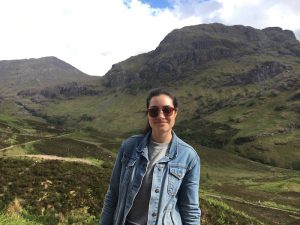
Isabela Vrba Neves youth advisory board, July-December 2017
Isabela Vrba Neves – Stockholm, Sweden
Vrba Neves is a journalist and writer based in Sweden, and a graduate from Kingston University London
Sweden is known for having a good track record when it comes to freedom of expression, and is regarded as being an example in democracy and equality. However, the Nordic country has recently been faced by a wave of threats by far-right groups attacking journalists and media organisations. In February 2017 journalist Evelyn Schreiber received hundreds of death threats and threats of sexual violence after questioning a Facebook post by Peter Springare, a police officer who heavily criticised immigrants for violent crimes.
Springare received support by far-right groups who went after Schreiber with messages and phone calls. In a radio interview Schreiber explained how she believed the threats were “organised” as she would receive a large amount of messages every time a far-right group shared her article on Facebook.
She also described how at first the groups mostly criticised her article, but then progressed to personal vulgar and sexist attacks towards her. The newspaper, Nerikes Allehanda, which published her article, reported the threats to the police.
An issue that Schreiber brings up with these kinds of incidents is that journalists may self-censor for their own safety, which in turn can threaten freedom of expression. To combat this, the Swedish government announced in July 2017 an action plan which aims to strengthen the preventative work towards hate and threats against journalists, artists and elected representatives.
The Swedish Victim Support and the Swedish Crime Victim Compensation and Support Authority have been commissioned to develop material that will provide knowledge and support to those who have been under threat for participating in public conversations, in order to strengthen free speech and freedom of expression.[/vc_column_text][/vc_column][/vc_row][vc_row full_width=”stretch_row_content”][vc_column][three_column_post title=”More from the youth advisory board” category_id=”6514″][/vc_column][/vc_row]
31 Jul 2017 | Awards
[vc_row][vc_column][vc_empty_space height=”5px”][vc_custom_heading text=”Freedom of Expression Awards Fellowship” font_container=”tag:h1|text_align:center” use_theme_fonts=”yes”][vc_custom_heading text=”Submit your nomination now” font_container=”tag:h3|text_align:center|color:%23dd3333″ use_theme_fonts=”yes” link=”url:%23nomination|||”][vc_empty_space height=”5px”][vc_row_inner][vc_column_inner width=”1/2″][vc_column_text]
Winners of the Freedom of Expression Awards Fellowship receive 12 months of capacity building, coaching and strategic support. Through the fellowships, Index seeks to maximise the impact and sustainability of voices at the forefront of pushing back censorship worldwide.
[/vc_column_text][/vc_column_inner][vc_column_inner width=”1/2″][vc_video link=”https://youtu.be/z4ZEuybB5Vc” align=”center”][/vc_column_inner][/vc_row_inner][/vc_column][/vc_row][vc_row][vc_column][vc_column_text]
The nomination period for the 2019 Freedom of Expression Awards Fellowship is now open.
The Freedom of Expression Awards Fellowship programme offers 12 months of support to individuals or organisations fighting to defeat censorship worldwide. Fellows receive assistance throughout the year, beginning with an all-expenses-paid training week in London. The Fellowship is an opportunity to build new skills and to network with other groups fighting for similar causes. The Fellowship encourages collaboration, helps maximise ongoing work and supports sustainability. The Fellowship is an enriching, one-of-a-kind experience in which fellows become part of a supportive worldwide community of free expression champions.
All information submitted as part of the nomination process will be held in strict confidence and used only in connection with the nomination. Your information will not be shared, sold or transferred to any party outside of Index or the nominations process. Your information will not be held after the nominations process is complete.[/vc_column_text][gravityform id=”23″ title=”false” description=”false” ajax=”false”][/vc_column][/vc_row][vc_row equal_height=”yes”][vc_column][vc_empty_space height=”5px”][vc_custom_heading text=”2019 Freedom of Expression Awards Fellowship Timeline” font_container=”tag:h3|text_align:center” use_theme_fonts=”yes”][vc_row_inner equal_height=”yes” el_class=”awards-timeline-grid”][vc_column_inner width=”1/6″][vc_single_image image=”80944″ img_size=”full”][vc_column_text]25 JUN – 30 SEP 2018
NOMINATIONS[/vc_column_text][/vc_column_inner][vc_column_inner width=”1/6″][vc_single_image image=”80945″ img_size=”full”][vc_column_text]DEC 2018
JUDGING PANEL ANNOUNCED[/vc_column_text][/vc_column_inner][vc_column_inner width=”1/6″][vc_single_image image=”80946″ img_size=”full”][vc_column_text]JAN 2018
SHORTLIST ANNOUNCED[/vc_column_text][/vc_column_inner][vc_column_inner width=”1/6″][vc_single_image image=”80947″ img_size=”full”][vc_column_text]1-5 APR 2019
AWARDS FELLOWSHIP WEEK[/vc_column_text][/vc_column_inner][vc_column_inner width=”1/6″][vc_single_image image=”80948″ img_size=”full”][vc_column_text]4 APR 2019
AWARDS GALA[/vc_column_text][/vc_column_inner][vc_column_inner width=”1/6″][vc_single_image image=”80949″ img_size=”full”][vc_column_text]APR 2019 – MAR 2020
AWARDS FELLOWSHIP[/vc_column_text][/vc_column_inner][/vc_row_inner][vc_empty_space][/vc_column][/vc_row][vc_row full_width=”stretch_row”][vc_column][vc_custom_heading text=”About the Awards Fellowship” font_container=”tag:h3|text_align:center” use_theme_fonts=”yes”][vc_row_inner equal_height=”yes” el_class=”awards-timeline-grid”][vc_column_inner width=”1/6″][vc_single_image image=”94804″ img_size=”full”][/vc_column_inner][vc_column_inner width=”1/6″][vc_column_text]One Full Year
Fellows receive 12 months of direct assistance, starting with an all-expenses-paid training week in London in April 2018.[/vc_column_text][/vc_column_inner][vc_column_inner width=”1/6″][vc_column_text]Survive
Index helps fellows build key partnerships, troubleshoot and receive expert support in multiple areas including personal safety, finance, PR and mental health.[/vc_column_text][/vc_column_inner][vc_column_inner width=”1/6″][vc_column_text]Thrive
Fellows work with Index and partners to identify and realise key strategic goals.[/vc_column_text][/vc_column_inner][vc_column_inner width=”1/6″][vc_column_text]Amplify
Index promotes news and regional developments through our magazine, website and social media.[/vc_column_text][/vc_column_inner][vc_column_inner width=”1/6″][vc_column_text]Network
Fellows become part of a supportive community of free expression champions worldwide.[/vc_column_text][/vc_column_inner][/vc_row_inner][vc_custom_heading text=”What we look for in selecting Awards Fellows” font_container=”tag:h3|text_align:center” use_theme_fonts=”yes”][vc_row_inner equal_height=”yes” el_class=”awards-timeline-grid”][vc_column_inner width=”1/6″][vc_single_image image=”94805″ img_size=”full”][/vc_column_inner][vc_column_inner width=”1/6″][vc_column_text]Timeliness
A significant contribution within the past 12 months.[/vc_column_text][/vc_column_inner][vc_column_inner width=”1/6″][vc_column_text]Resilience
Courage to speak out, persisting in the face of adversity.[/vc_column_text][/vc_column_inner][vc_column_inner width=”1/6″][vc_column_text]Innovation
Creative ways of promoting free expression or circumventing censorship.[/vc_column_text][/vc_column_inner][vc_column_inner width=”1/6″][vc_column_text]Impact
Evidence of shifting perceptions, influencing public or government opinion, contributing to legislative change.[/vc_column_text][/vc_column_inner][vc_column_inner width=”1/6″][vc_column_text]Need
Those cases where the 2018 Awards Fellowship can potentially add the most value.[/vc_column_text][/vc_column_inner][/vc_row_inner][vc_custom_heading text=”We award Fellowships in four categories” font_container=”tag:h3|text_align:center” use_theme_fonts=”yes”][vc_row_inner equal_height=”yes” el_class=”text_white”][vc_column_inner width=”1/4″ css=”.vc_custom_1501508115518{background-color: #cb3000 !important;}”][vc_custom_heading text=”Arts” font_container=”tag:h3|text_align:left” use_theme_fonts=”yes”][vc_column_text]for artists and arts producers whose work challenges repression and injustice and celebrates artistic free expression[/vc_column_text][/vc_column_inner][vc_column_inner width=”1/4″ css=”.vc_custom_1501508268476{background-color: #d98c00 !important;}”][vc_custom_heading text=”Campaigning” font_container=”tag:h3|text_align:left” use_theme_fonts=”yes”][vc_column_text]for activists and campaigners who have had a marked impact in fighting censorship and promoting freedom of expression[/vc_column_text][/vc_column_inner][vc_column_inner width=”1/4″ css=”.vc_custom_1501508309950{background-color: #cb3000 !important;}”][vc_custom_heading text=”Digital Activism” font_container=”tag:h3|text_align:left” use_theme_fonts=”yes”][vc_column_text]for innovative uses of technology to circumvent censorship and enable free and independent exchange of information[/vc_column_text][/vc_column_inner][vc_column_inner width=”1/4″ css=”.vc_custom_1501508333043{background-color: #d98c00 !important;}”][vc_custom_heading text=”Journalism” font_container=”tag:h3|text_align:left” use_theme_fonts=”yes”][vc_column_text]for courageous, high-impact and determined journalism that exposes censorship and threats to free expression[/vc_column_text][/vc_column_inner][/vc_row_inner][vc_empty_space height=”15px”][/vc_column][/vc_row][vc_row full_width=”stretch_row” css=”.vc_custom_1504188991311{background-color: #f2f2f2 !important;}”][vc_column][vc_tta_tabs color=”white” active_section=”1″][vc_tta_section title=”2018 Fellows” tab_id=”1501506166658-bae3c112-ebd9″][vc_custom_heading text=”Campaigning” font_container=”tag:h4|text_align:center” use_theme_fonts=”yes” link=”url:https%3A%2F%2Fwww.indexoncensorship.org%2F2017%2F04%2Fcampaigning-fellow-2017%2F|||”][vc_row_inner][vc_column_inner][vc_custom_heading text=”2018 Fellows” font_container=”tag:h2|text_align:center” use_theme_fonts=”yes”][vc_column_text]
Selected from over 400 public nominations and a shortlist of 16, the 2018 Freedom of Expression Awards Fellows exemplify courage in the face of censorship. Learn more about the fellowship.
[/vc_column_text][/vc_column_inner][/vc_row_inner][vc_row_inner][vc_column_inner width=”1/4″][vc_custom_heading text=”Arts” font_container=”tag:h4|text_align:center” use_theme_fonts=”yes” link=”url:https%3A%2F%2Fwww.indexoncensorship.org%2F2017%2F04%2Farts-fellow-2017%2F|||”][vc_custom_heading text=”Museum of Dissidence” font_container=”tag:h4|text_align:center” use_theme_fonts=”yes” link=”url:https%3A%2F%2Fwww.indexoncensorship.org%2F2018%2F04%2Farts-fellow-2018%2F|||”][vc_single_image image=”97994″ img_size=”full” alignment=”center” onclick=”custom_link” link=”https://www.indexoncensorship.org/2018/04/arts-fellow-2018/”][/vc_column_inner][vc_column_inner width=”1/4″][vc_custom_heading text=”Campaigning” font_container=”tag:h4|text_align:center” use_theme_fonts=”yes” link=”url:https%3A%2F%2Fwww.indexoncensorship.org%2F2017%2F04%2Farts-fellow-2017%2F|||”][vc_custom_heading text=”ECRF” font_container=”tag:h4|text_align:center” use_theme_fonts=”yes” link=”url:https%3A%2F%2Fwww.indexoncensorship.org%2F2018%2F04%2Fcampaigning-fellow-2018%2F|||”][vc_single_image image=”97988″ img_size=”full” alignment=”center” onclick=”custom_link” link=”https://www.indexoncensorship.org/2018/04/campaigning-fellow-2018/”][vc_column_text]The 2018 Campaigning Award is supported by Doughty Street Chambers[/vc_column_text][/vc_column_inner][vc_column_inner width=”1/4″][vc_custom_heading text=”Digital Activism” font_container=”tag:h4|text_align:center” use_theme_fonts=”yes” link=”url:https%3A%2F%2Fwww.indexoncensorship.org%2F2017%2F04%2Fdigital-activism-2017%2F|||”][vc_custom_heading text=”Habari RDC” font_container=”tag:h4|text_align:center” use_theme_fonts=”yes” link=”url:https%3A%2F%2Fwww.indexoncensorship.org%2F2018%2F04%2Fdigital-activism-2018%2F|||”][vc_single_image image=”97990″ img_size=”full” alignment=”center” onclick=”custom_link” link=”https://www.indexoncensorship.org/2018/04/digital-activism-2018/”][vc_column_text]The 2018 Digital Activism Award is sponsored by Private Internet Access[/vc_column_text][/vc_column_inner][vc_column_inner width=”1/4″][vc_custom_heading text=”Journalism” font_container=”tag:h4|text_align:center” use_theme_fonts=”yes” link=”url:https%3A%2F%2Fwww.indexoncensorship.org%2F2017%2F04%2Fjournalism-2017%2F|||”][vc_custom_heading text=”Wendy Funes” font_container=”tag:h4|text_align:center” use_theme_fonts=”yes” link=”url:https%3A%2F%2Fwww.indexoncensorship.org%2F2018%2F04%2Fjournalism-2018%2F|||”][vc_single_image image=”98000″ img_size=”full” alignment=”center” onclick=”custom_link” link=”https://www.indexoncensorship.org/2018/04/journalism-2018/”][vc_column_text]The 2018 Journalism Award is sponsored by Vice News[/vc_column_text][/vc_column_inner][/vc_row_inner][three_column_post title=”2018 Fellows News” category_id=”23707″][/vc_tta_section][vc_tta_section title=”2017 Fellows” tab_id=”1524472475785-d2464a89-c53e”][vc_row_inner][vc_column_inner][vc_custom_heading text=”2017 Fellows” font_container=”tag:h2|text_align:center” use_theme_fonts=”yes”][vc_column_text]
Selected from over 400 public nominations and a shortlist of 16, the 2017 Freedom of Expression Awards Fellows exemplify courage in the face of censorship. Learn more about the fellowship.
[/vc_column_text][/vc_column_inner][/vc_row_inner][vc_row_inner][vc_column_inner width=”1/4″][vc_custom_heading text=”Arts” font_container=”tag:h4|text_align:center” use_theme_fonts=”yes” link=”url:https%3A%2F%2Fwww.indexoncensorship.org%2F2017%2F04%2Farts-fellow-2017%2F|||”][vc_custom_heading text=”Rebel Pepper” font_container=”tag:h4|text_align:center” use_theme_fonts=”yes” link=”url:https%3A%2F%2Fwww.indexoncensorship.org%2F2017%2F04%2Farts-fellow-2017%2F|||”][vc_single_image image=”94724″ img_size=”full” alignment=”center” onclick=”custom_link” link=”https://www.indexoncensorship.org/2017/04/arts-fellow-2017/”][/vc_column_inner][vc_column_inner width=”1/4″][vc_custom_heading text=”Campaigning” font_container=”tag:h4|text_align:center” use_theme_fonts=”yes” link=”url:https%3A%2F%2Fwww.indexoncensorship.org%2F2017%2F04%2Fcampaigning-fellow-2017%2F|||”][vc_custom_heading text=”Ildar Dadin” font_container=”tag:h4|text_align:center” use_theme_fonts=”yes” link=”url:https%3A%2F%2Fwww.indexoncensorship.org%2F2017%2F04%2Fcampaigning-fellow-2017%2F|||”][vc_single_image image=”94725″ img_size=”full” alignment=”center” onclick=”custom_link” link=”https://www.indexoncensorship.org/2017/04/campaigning-fellow-2017/”][vc_column_text]The 2017 Campaigning Award is supported by Doughty Street Chambers[/vc_column_text][/vc_column_inner][vc_column_inner width=”1/4″][vc_custom_heading text=”Digital Activism” font_container=”tag:h4|text_align:center” use_theme_fonts=”yes” link=”url:https%3A%2F%2Fwww.indexoncensorship.org%2F2017%2F04%2Fdigital-activism-2017%2F|||”][vc_custom_heading text=”Turkey Blocks” font_container=”tag:h4|text_align:center” use_theme_fonts=”yes” link=”url:https%3A%2F%2Fwww.indexoncensorship.org%2F2017%2F04%2Fdigital-activism-2017%2F|||”][vc_single_image image=”94726″ img_size=”full” alignment=”center” onclick=”custom_link” link=”https://www.indexoncensorship.org/2017/04/digital-activism-2017/”][vc_column_text]The 2017 Digital Activism Award is sponsored by Private Internet Access[/vc_column_text][/vc_column_inner][vc_column_inner width=”1/4″][vc_custom_heading text=”Journalism” font_container=”tag:h4|text_align:center” use_theme_fonts=”yes” link=”url:https%3A%2F%2Fwww.indexoncensorship.org%2F2017%2F04%2Fjournalism-2017%2F|||”][vc_custom_heading text=”Maldives Independent” font_container=”tag:h4|text_align:center” use_theme_fonts=”yes” link=”url:https%3A%2F%2Fwww.indexoncensorship.org%2F2017%2F04%2Fjournalism-2017%2F|||”][vc_single_image image=”94727″ img_size=”full” alignment=”center” onclick=”custom_link” link=”https://www.indexoncensorship.org/2017/04/journalism-2017/”][vc_column_text]The 2017 Journalism Award is sponsored by CNN[/vc_column_text][/vc_column_inner][/vc_row_inner][three_column_post title=”2017 Fellows News” category_id=”15965″][/vc_tta_section][vc_tta_section title=”2016 Fellows” tab_id=”1501487515382-d17ff4cd-299e”][vc_row_inner][vc_column_inner width=”1/6″][vc_custom_heading text=”2016 Fellows” font_container=”tag:h3|text_align:left” use_theme_fonts=”yes”][/vc_column_inner][vc_column_inner width=”1/6″][vc_custom_heading text=”Arts | Murad Subay” font_container=”tag:h4|text_align:center” use_theme_fonts=”yes” link=”url:https%3A%2F%2Fwww.indexoncensorship.org%2F2016%2F11%2Farts-fellow-2016%2F|||”][vc_single_image image=”74790″ img_size=”full” alignment=”center” onclick=”custom_link” link=”https://www.indexoncensorship.org/2016/11/arts-fellow-2016/”][/vc_column_inner][vc_column_inner width=”1/6″][vc_custom_heading text=”Campaigning | Bolo Bhi” font_container=”tag:h4|text_align:center” use_theme_fonts=”yes” link=”url:https%3A%2F%2Fwww.indexoncensorship.org%2F2016%2F03%2Fcampaigning-2016%2F|||”][vc_single_image image=”82685″ img_size=”full” alignment=”center” onclick=”custom_link” link=”https://www.indexoncensorship.org/2016/03/campaigning-2016/”][/vc_column_inner][vc_column_inner width=”1/6″][vc_custom_heading text=”Digital Activism | GreatFire” font_container=”tag:h4|text_align:center” use_theme_fonts=”yes” link=”url:https%3A%2F%2Fwww.indexoncensorship.org%2F2016%2F03%2Fdigital-activism-2016%2F|||”][vc_single_image image=”82689″ img_size=”full” alignment=”center” onclick=”custom_link” link=”https://www.indexoncensorship.org/2016/03/digital-activism-2016/”][/vc_column_inner][vc_column_inner width=”1/6″][vc_custom_heading text=”Journalism | Zaina Erhaim” font_container=”tag:h4|text_align:center” use_theme_fonts=”yes” link=”url:https%3A%2F%2Fwww.indexoncensorship.org%2F2016%2F03%2Fjournalism-2016%2F|||”][vc_single_image image=”82702″ img_size=”full” alignment=”center” onclick=”custom_link” link=”https://www.indexoncensorship.org/2016/03/journalism-2016/”][/vc_column_inner][vc_column_inner width=”1/6″][vc_custom_heading text=”Music in Exile | Smockey” font_container=”tag:h4|text_align:center” use_theme_fonts=”yes” link=”url:https%3A%2F%2Fwww.indexoncensorship.org%2F2016%2F03%2Fmusic-in-exile-2016%2F|||”][vc_single_image image=”81098″ img_size=”full” alignment=”center” onclick=”custom_link” link=”https://www.indexoncensorship.org/2016/03/music-in-exile-2016/”][/vc_column_inner][/vc_row_inner][three_column_post title=”2016 Fellows News” category_id=”16122″][/vc_tta_section][vc_tta_section title=”2015 Fellows” tab_id=”1501487515639-5231aa25-0705″][vc_row_inner][vc_column_inner width=”1/6″][vc_custom_heading text=”2015 Fellows” font_container=”tag:h3|text_align:center” use_theme_fonts=”yes”][/vc_column_inner][vc_column_inner width=”1/6″][vc_custom_heading text=”Arts | El Haqed” font_container=”tag:h4|text_align:center” use_theme_fonts=”yes” link=”url:https%3A%2F%2Fwww.indexoncensorship.org%2F2015%2F03%2Farts-2015%2F|||”][vc_single_image image=”81111″ img_size=”full” alignment=”center” onclick=”custom_link” link=”https://www.indexoncensorship.org/2015/03/arts-2015/”][/vc_column_inner][vc_column_inner width=”1/6″][vc_custom_heading text=”Campaigning | Amran Abdundi” font_container=”tag:h4|text_align:center” use_theme_fonts=”yes” link=”url:https%3A%2F%2Fwww.indexoncensorship.org%2F2015%2F03%2Fcampaigning-2015%2F|||”][vc_single_image image=”81118″ img_size=”full” alignment=”center” onclick=”custom_link” link=”https://www.indexoncensorship.org/2015/03/campaigning-2015/”][/vc_column_inner][vc_column_inner width=”1/6″][vc_custom_heading text=”Digital Activism | Tamás Bodoky” font_container=”tag:h4|text_align:center” use_theme_fonts=”yes” link=”url:https%3A%2F%2Fwww.indexoncensorship.org%2F2015%2F03%2Fdigital-activism-2015%2F|||”][vc_single_image image=”81126″ img_size=”full” alignment=”center” onclick=”custom_link” link=”https://www.indexoncensorship.org/2015/03/digital-activism-2015/”][/vc_column_inner][vc_column_inner width=”1/6″][vc_custom_heading text=”Journalism | Rafael Marques de Morais” font_container=”tag:h4|text_align:center” use_theme_fonts=”yes” link=”url:https%3A%2F%2Fwww.indexoncensorship.org%2F2015%2F03%2Fjournalism-2015%2F|||”][vc_single_image image=”81131″ img_size=”full” alignment=”center” onclick=”custom_link” link=”https://www.indexoncensorship.org/2015/03/journalism-2015/”][/vc_column_inner][vc_column_inner width=”1/6″][vc_custom_heading text=”Journalism | Safa Al Ahmad” font_container=”tag:h4|text_align:center” use_theme_fonts=”yes” link=”url:https%3A%2F%2Fwww.indexoncensorship.org%2F2015%2F03%2Fjournalism-2015-2%2F|||”][vc_single_image image=”81138″ img_size=”full” alignment=”center” onclick=”custom_link” link=”https://www.indexoncensorship.org/2015/03/journalism-2015-2/”][/vc_column_inner][/vc_row_inner][three_column_post title=”2015 Fellows News” category_id=”16123″][/vc_tta_section][/vc_tta_tabs][/vc_column][/vc_row][vc_row][vc_column][vc_separator color=”black”][vc_row_inner equal_height=”yes”][vc_column_inner width=”1/2″][vc_custom_heading text=”Support the Index Awards.” font_container=”tag:p|font_size:28|text_align:center” use_theme_fonts=”yes” link=”url:https%3A%2F%2Fwww.indexoncensorship.org%2Fsupport-the-freedom-of-expression-awards%2F|||”][vc_column_text]
By donating to the Freedom of Expression Awards you help us support individuals and groups at the forefront of tackling censorship.
Find out more
[/vc_column_text][/vc_column_inner][vc_column_inner width=”1/2″ css=”.vc_custom_1528707303361{background-image: url(https://www.indexoncensorship.org/wp-content/uploads/2018/04/EMK_2426web-1460×490-1.jpg?id=99905) !important;background-position: center !important;background-repeat: no-repeat !important;background-size: cover !important;}”][/vc_column_inner][/vc_row_inner][vc_empty_space height=”30px”][vc_separator color=”black”][/vc_column][/vc_row][vc_row full_width=”stretch_row” css=”.vc_custom_1500374757272{margin-top: 20px !important;padding-top: 20px !important;padding-bottom: 20px !important;}”][vc_column][vc_row_inner][vc_column_inner][vc_custom_heading text=”SPONSORS” font_container=”tag:h1|text_align:center” use_theme_fonts=”yes” css=”.vc_custom_1484567001197{margin-bottom: 30px !important;}”][vc_column_text]
The Freedom of Expression Awards and Fellowship have massive impact. You can help by sponsoring or supporting a fellowship.
Index is grateful to those who supported the 2018 Freedom of Expression Awards Fellowships:
[/vc_column_text][/vc_column_inner][/vc_row_inner][vc_row_inner equal_height=”yes” el_class=”container container980″][vc_column_inner width=”1/2″ offset=”vc_col-xs-6″][vc_single_image image=”80918″ img_size=”234×234″ alignment=”center” onclick=”custom_link” img_link_target=”_blank” link=”https://uk.sagepub.com/”][vc_single_image image=”85983″ img_size=”234×234″ alignment=”center” onclick=”custom_link” link=”https://www.privateinternetaccess.com/”][/vc_column_inner][vc_column_inner width=”1/2″ offset=”vc_col-xs-6″][vc_single_image image=”80921″ img_size=”234×234″ alignment=”center” onclick=”custom_link” img_link_target=”_blank” link=”https://www.google.co.uk/about/”][vc_single_image image=”85586″ img_size=”full” alignment=”center” onclick=”custom_link” link=”http://www.edwardian.com/”][/vc_column_inner][/vc_row_inner][vc_row_inner equal_height=”yes” el_class=”container container980″][vc_column_inner width=”1/3″ offset=”vc_col-xs-6″][vc_single_image image=”99955″ img_size=”full” alignment=”center” onclick=”custom_link” img_link_target=”_blank” link=”http://www.vodafone.com/content/index.html#”][/vc_column_inner][vc_column_inner width=”1/3″ offset=”vc_col-xs-6″][vc_single_image image=”82323″ alignment=”center” onclick=”custom_link” link=”https://news.vice.com/”][/vc_column_inner][vc_column_inner width=”1/3″ offset=”vc_col-xs-6″][vc_single_image image=”80923″ img_size=”medium” alignment=”center” onclick=”custom_link” img_link_target=”_blank” link=”http://www.doughtystreet.co.uk/”][/vc_column_inner][/vc_row_inner][vc_row_inner equal_height=”yes” el_class=”container container980″][vc_column_inner width=”1/3″ offset=”vc_col-xs-6″][/vc_column_inner][vc_column_inner width=”1/3″ offset=”vc_col-xs-6″][vc_single_image image=”80924″ img_size=”full” alignment=”center” onclick=”custom_link” img_link_target=”_blank” link=”https://psiphon.ca/”][/vc_column_inner][vc_column_inner width=”1/3″ offset=”vc_col-xs-6″][/vc_column_inner][/vc_row_inner][vc_column_text]
If you are interested in sponsorship you can contact [email protected]
[/vc_column_text][/vc_column][/vc_row]
19 Jun 2017 | Artistic Freedom, News and features, Volume 46.02 Summer 2017
[vc_row][vc_column][vc_custom_heading text=”When cartoonists are being arrested, and novelists told their plots must only support the government line, you know your nation is in deep trouble, argues Rachael Jolley”][vc_row_inner][vc_column_inner][vc_column_text]
[/vc_column_text][/vc_column_inner][/vc_row_inner][/vc_column][/vc_row][vc_row][vc_column][vc_column_text]
A COUNTRY’S SENSE OF humour is a nebulous thing. But when it starts to disappear, something serious is afoot.
And so it is in Spain right now. Comedy, it turns out, is touching a nerve, as it often does, and rather surprisingly the lawyers are getting involved. Comedy is not only a threat, but under threat.
What’s bizarre is, this is Spain, a modern democracy, a solid, sensible country at the centre of Europe. Locking people up for making a joke, that’s something you might expect from an authoritarian and struggling state. But Spain?
Well, it turns out, this is Spain in the 21st century. The list of comedy offences is not short. Spanish comedian Dani Mateo was told to testify before a judge in May for telling a joke referring to a monument built by Franco’s regime as “shit”. He told the joke during a satirical show. Now it doesn’t sound like the best joke in the world, but hell, we defend his right to tell it. And Mateo is not alone in the Spanish comic fraternity. There’s Facu Díaz, who was prosecuted last year for posting jokes on social media; Cassandra Vera, who was sentenced to a year in prison for making jokes about a former Spanish president; and three women who were accused of a religious hate crime for mocking a traditional Easter procession. Puppeteers whose Punch and Judy show included a sign for a made-up terrorist organisation carried by a witch spent a year fighting prosecution, unable to leave the country for weeks, receiving anonymous threats and having to report regularly to the police. On and on it goes, as Silvia Nortes reports for us on page 85.
So why does any of this matter? Well, jokes are a barometer of public mood, and as British comedian Andy Hamilton told this summer’s Hay Festival, you can even use them to test how much the public like or dislike a politician or public figure. He remembered making a joke about then Prime Minister Margaret Thatcher, and being told by one of her staunchest supporters to expect a wave of outrage. On checking, he found just three complaints, and that’s when, he said, he knew Thatcher was on the way out. Similarly, a recent joke about former UK Justice Secretary Michael Gove received a big fat zero moans in the BBC complaints box. Hamilton reckoned this was a sign of just how little the public cared about Gove.
So jokes do take the temperature of the nation, and one of many reasons politicians fear them is, as Mark Twain said, “Against the assault of laughter, nothing can stand.”
Politicians fear being made fun of, and fear that a satirical representation of themselves may take root in the electorate’s brain. They fear the public seeing their weaknesses. Some may remember that the classic satirical British TV puppet show Spitting Image reduced each member of the cabinet to a single ridiculous idea, a spitting former Home Secretary Roy Hattersley or a tiny David Steel tucked in the top pocket of David Owen (joint leaders of the SDP-Liberal alliance). Not good for their egos, not good for their future prospects. Steel said later that the sketch definitely affected his image.
[/vc_column_text][/vc_column][/vc_row][vc_row][vc_column width=”1/4″][vc_icon icon_fontawesome=”fa fa-quote-left” color=”custom” align=”right” custom_color=”#dd3333″][/vc_column][vc_column width=”3/4″][vc_custom_heading text=”That idea of groupthink, honed by the Soviet Union, satirised by George Orwell, continues to haunt writers in former communist countries today” google_fonts=”font_family:Libre%20Baskerville%3Aregular%2Citalic%2C700|font_style:400%20italic%3A400%3Aitalic”][/vc_column][/vc_row][vc_row][vc_column][vc_column_text]
Joke-telling is not the only ingredient in the comedy cupboard that upsets the powers that be. Historically, exaggerated portraits, as Edward Lucie-Smith writes in issue 197 of Index on Censorship, have long been used to diminish or enhance a public character. The most obvious creators of exaggerated portraits are newspaper cartoonists, who sometimes feel the long arm of the police on their shoulders as a result.
In our exclusive interview with legendary South African cartoonist Zapiro, he talks not only about the power of cartoonists, but the pressure on them not to offend or upset. In an interview with South African journalist Raymond Joseph, Zapiro said: “We provoke thought, even if that thought is pretty outrageous. Others can do it too. We just occupy a space where you can really push the boundaries.” Zapiro faced a six-year court battle with South Africa’s President Jacob Zuma over one of his cartoons. But Zapiro is just as feisty as ever, and reckons he is bolshier than the generations that have come after him.
Cracking down on comedy is just one way to command and control society. This issue’s special report examines others as we study the long shadows Russia’s 1917 revolution cast within and without its national borders.
From the beginning the early Soviets were not particularly fond of disagreement. Shortly after their rise to power, between October 1917 and June 1918, around 470 opposition publications were closed down. Lenin was clear how the nation should work. He believed that journalists, novelists and opinion formers were either with him, or against the state. If they were against the state, they shouldn’t be allowed to write or outline their views. “Down with non-partisan writers,” he argued. This is a view very much in favour with many other rulers today, including Angola’s President José Eduardo dos Santos, Chinese President Xi Jinping, and, recently, US President Donald Trump.
That idea of groupthink, honed by the Soviet Union, satirised by George Orwell, continues to haunt writers in former communist countries today. In Uzbekistan, as Hamid Ismailov outlines, the Soviet Union may have fallen, but the thinking remains the same. Writers with arguments that contradict President Shavkat Mirziyoyev are either neutralised by being employed by the state as advisers and consultants, or leave the country, or fail to be published.
In President Vladimir Putin’s Russia most of the media, apart from a few brave exceptions, fall into line with government positions. For instance, in February this year, according to the Index-led Mapping Media Freedom project, major Russian national television channels abruptly reduced the number of times they mentioned the US president. This followed a Kremlin order to cut back on “fawning coverage” of Trump.
In all the recent furore over “fake news”, prompted by almost incessant use of the term by Trump to undermine any reporting he didn’t like, it’s worth pointing out that tricks to get the public to believe something that is not true have been used throughout history. In fact, as Jemimah Steinfeld investigates (page 114), the Roman emperor Augustus was a master of manipulation well before PR handbooks were written.
And open the pages of a treasured book in our office and you’ll see an early version of photoshopping at work. Photographs featured in The Commissar Vanishes: The Falsification of Photographs and Art in Stalin’s Russia, show how people were “disappeared” from official Soviet portraits in the 1930s as they fell out of favour. Belarusians have been experiencing government attempts to get them to believe false stories for decades. In his report on page 52, Andrei Aliaksandrau unpicks the tricks used over the years and holds them up to the light.
And there’s some excellent thoughtful pieces in our fiction section too, with two new short stories written for this publication: one by Turkish writer Kaya Genç, and the other by British writer Jonathan Tel. The final slice is a new English translation of a much older story, by Russia’s “Comrade Count” Alexei Tolstoy.
To finish, a sad note. Our regular, and fantastic, Brazil correspondent Claire Rigby has died suddenly. Claire did amazing reporting for us, and we will miss her.
[/vc_column_text][/vc_column][/vc_row][vc_row][vc_column][vc_column_text]
Rachael Jolley is the editor of Index on Censorship magazine. She recently won the editor of the year (special interest) at British Society of Magazine Editors’ 2016 awards
[/vc_column_text][/vc_column][/vc_row][vc_row][vc_column][vc_custom_heading text=”From the Archives”][vc_row_inner][vc_column_inner width=”1/3″][vc_single_image image=”80569″ img_size=”213×289″ alignment=”center” onclick=”custom_link” link=”http://journals.sagepub.com/doi/pdf/10.1177/0306422017716030″][vc_custom_heading text=”Provoking the president” font_container=”tag:p|font_size:24|text_align:left” link=”url:http%3A%2F%2Fjournals.sagepub.com%2Fdoi%2Fpdf%2F10.1177%2F0306422017716030|||”][vc_column_text]June 2016
Legendary South African cartoonist Zapiro talks about being sued for millions by Jacob Zuma, fighting for “Lady Press Freedom” and death threats.[/vc_column_text][/vc_column_inner][vc_column_inner width=”1/3″][vc_single_image image=”90636″ img_size=”213×289″ alignment=”center” onclick=”custom_link” link=”http://journals.sagepub.com/doi/pdf/10.1177/030642200002900126″][vc_custom_heading text=”Funeral of laughter” font_container=”tag:p|font_size:24|text_align:left” link=”url:http%3A%2F%2Fjournals.sagepub.com%2Fdoi%2Fpdf%2F10.1177%2F030642200002900126|||”][vc_column_text]January 2000
Oscar Collazos reports on the Colombian mourners after the assassination of comedian Jaime Garzon, who told insolent truths to the world.[/vc_column_text][/vc_column_inner][vc_column_inner width=”1/3″][vc_single_image image=”89185″ img_size=”213×289″ alignment=”center” onclick=”custom_link” link=”http://journals.sagepub.com/doi/pdf/10.1080/03064220500157814″][vc_custom_heading text=”You must be joking! ” font_container=”tag:p|font_size:24|text_align:left” link=”url:http%3A%2F%2Fjournals.sagepub.com%2Fdoi%2Fpdf%2F10.1080%2F03064220500157814|||”][vc_column_text]May 2005
Israeli comedians who dare to make jokes around the Shoah run foul of their country’s ultimate taboo: this is no laughing matter.[/vc_column_text][/vc_column_inner][/vc_row_inner][vc_separator][/vc_column][/vc_row][vc_row content_placement=”top”][vc_column width=”1/3″][vc_custom_heading text=”100 Years On” font_container=”tag:p|font_size:24|text_align:left” link=”url:https%3A%2F%2Fwww.indexoncensorship.org%2F2017%2F06%2F100-years-on%2F|||”][vc_column_text]Through a range of in-depth reporting, interviews and illustrations, the summer 2017 issue of Index on Censorship magazine explores how the consequences of the 1917 Russian Revolution still affect freedoms today, in Russia and around the world.
With: Andrei Arkhangelsky, BG Muhn, Nina Khrushcheva[/vc_column_text][/vc_column][vc_column width=”1/3″][vc_single_image image=”91220″ img_size=”medium” alignment=”center” onclick=”custom_link” link=”https://www.indexoncensorship.org/magazine”][/vc_column][vc_column width=”1/3″ css=”.vc_custom_1481888488328{padding-bottom: 50px !important;}”][vc_custom_heading text=”Subscribe” font_container=”tag:p|font_size:24|text_align:left” link=”url:https%3A%2F%2Fwww.indexoncensorship.org%2Fsubscribe%2F|||”][vc_column_text]In print, online. In your mailbox, on your iPad.
Subscription options from £18 or just £1.49 in the App Store for a digital issue.
Every subscriber helps support Index on Censorship’s projects around the world.
 SUBSCRIBE NOW[/vc_column_text][/vc_column][/vc_row][vc_row full_width=”stretch_row_content_no_spaces” content_placement=”middle”][vc_column][vc_single_image image=”91122″ img_size=”full” alignment=”center” onclick=”custom_link” link=”https://www.indexoncensorship.org/2017/05/stand-up-for-satire/”][/vc_column][/vc_row]
SUBSCRIBE NOW[/vc_column_text][/vc_column][/vc_row][vc_row full_width=”stretch_row_content_no_spaces” content_placement=”middle”][vc_column][vc_single_image image=”91122″ img_size=”full” alignment=”center” onclick=”custom_link” link=”https://www.indexoncensorship.org/2017/05/stand-up-for-satire/”][/vc_column][/vc_row]










